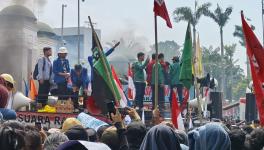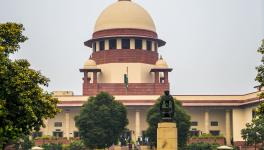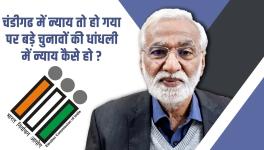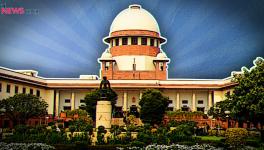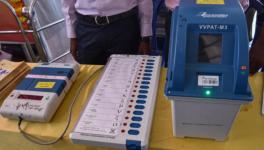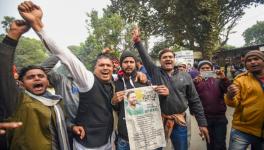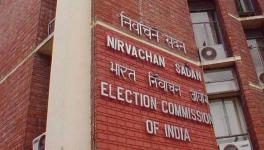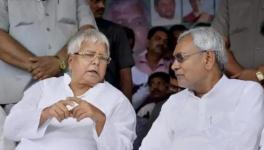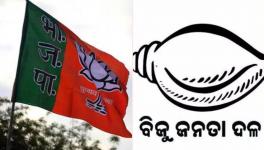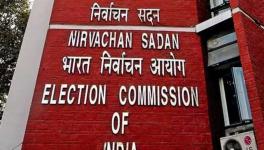How the Invisible Hand of the RSS Impacts Elections
Election analysis mostly takes into account that obvious factors that can explain electoral outcomes. How the “invisible hand” of the RSS works before and during elections is completely by-passed. The RSS is a semi-secretive organisation that is also essentially—as it claims—a cultural outfit too. This in itself makes it intriguing: what impact can a semi-secretive “cultural organisation” with no registered membership have on an election?
We have a first-hand account from a well-known Member of Parliament from the 2019 general election. Second, the Telangana Rashtriya Samiti recently lost a by-election in the Dubbaka Assembly seat. On both occasions, the RSS played an important but invisible role. Its members present themselves as cultural and not political persons while campaigning for the Bharatiya Janata Party. They say the organisation itself is keen on larger national issues and in the Hindus and their safety and not on the immediate election results.
During the last general election, the RSS was silently campaigning from door-to-door for months without organising any public meetings. RSS pracharaks accompanied BJP candidates and organised a campaign to visit homes, where they touched women’s feet and sought their blessings. They offered women vermilion and turmeric, which carry a deep cultural symbolism of prosperity, safety and long lives for their husbands. While the ruling TRS candidate had thought, given his popularity and reasonably clean and approachable image, the Lok Sabha seat would be a cakewalk. Later, he rued that what seemed to be an innocuous campaign resulted in his “shock defeat”.
And in the Dubbaka by-election in Telangana, it was initially believed that the contest was between the TRS and the Congress, while the BJP was nowhere in the running. But a few months before the by-election (November 2020) hundreds of full-time pracharaks had descended on the constituency from Delhi and begun a campaign for the BJP candidate. They misinformed the people of the constituency that most welfare schemes they are beneficiaries of have been initiated and funded by the Centre and that the TRS is falsely appropriating them. This concerted campaign went on for months and created a narrative of sorts that people ended up believing. While the ruling party assumed that the BJP is weak, its candidate relatively unknown, and the party lacked an organisation on ground, it won by a thin margin of just over 1,000 votes.
Further, it was observed in Dubbaka that the youth got attracted to and voluntarily joined the RSS pracharaks once they swung into action and ended up supporting the BJP more vociferously. Pracharaks, who work diligently, silently and selflessly, add a larger-than-life dynamics to electioneering, an activity that can otherwise appear very pragmatic, everyday, and run-of-the-mill. The RSS introduces questions of larger cultural history, national interest and religion into elections. The youth, it was observed, got drawn into playing and representing this larger-than-life role rather than merely getting lost in the mundane political work of other political parties. The modus operandi of the RSS is to work through the family as a unit of its campaign—and not organise larger public meetings. Pracharaks begin the conversation with issues of family, community, religion and nation, offering people a ready entry point even if they are from the outside a region and do not speak the local language. This element of the “primordial” also allows them to foster trust and then spread misinformation and rumours, but invisibly, through small family networks that go unnoticed.
So, the RSS occupies a kind of liminal space between the private and the public. The information that its members pass around resembles the private talk that takes place within families. Information that is expected to be kept within the family circles is shared, the kind of information that is neither expected to be discussed in public nor verified. This kind of information is considered trusted and protected and any doubts on its veracity are resisted.
Today the RSS is the only organisation in India which can reach its hands into the private-familial sphere. Other regional parties that have risen organically, like the Telugu Desam Party or the Samajwadi Party, have strong community and spatial links too, but they maintain a distance from the private sphere. Whereas, the RSS is able to reach the women of the household, as they did in Telangana. This lends to the organisation a different kind of cultural authenticity and emotional symbolism. Its techniques cut across caste-community networks on which most other parties work their campaigns and political strategies.
This, of course, is working better because Prime Minister Narendra Modi still garners trust and admiration, which also works the other way around, helping his party. Gaining trust is by far the most decisive factor that determines the fate of public representatives in elections. The quick spread of the BJP in states such as West Bengal, where it had hardly any electoral presence until very recently, became feasible because the RSS works an area for many years before the BJP enters the fray. The BJP begins its campaign with prior access to the local sensibilities, cultural moorings and issues that concern people through the first-hand accounts gathered by pracharaks. Other political parties rely on private and professional media outfits or NGOs to supply this information.
While the BJP and its electoral architects do the last-minute caste calculations and try to get their arithmetic right, the back-breaking and almost thankless work is done by RSS pracharaks well in advance. They bring an energy and intimacy that cannot be attained through impersonal political organisational structures. It also represents a sense of commitment that goes beyond immediate politics. These factors lend a different velocity to an on-ground campaign. Most candidates and Opposition parties are led by the more visible, and often deliberately crude, campaigns of the BJP. Yet that is only what is visible to us. For instance, in West Bengal, the crudity is often discussed and criticised, rarely is it discussed what “work” is RSS really doing in the state. Is the vulgarity of the BJP’s political language offset by a silent cultural, emotional, personal and familial campaign of the RSS? Those designing strategies for elections against the BJP in future need to pause and reflect on the invisible hand of the RSS and its implications for electoral outcomes.
The author is associate professor, Centre for Political Studies, JNU. The views are personal.
Get the latest reports & analysis with people's perspective on Protests, movements & deep analytical videos, discussions of the current affairs in your Telegram app. Subscribe to NewsClick's Telegram channel & get Real-Time updates on stories, as they get published on our website.









